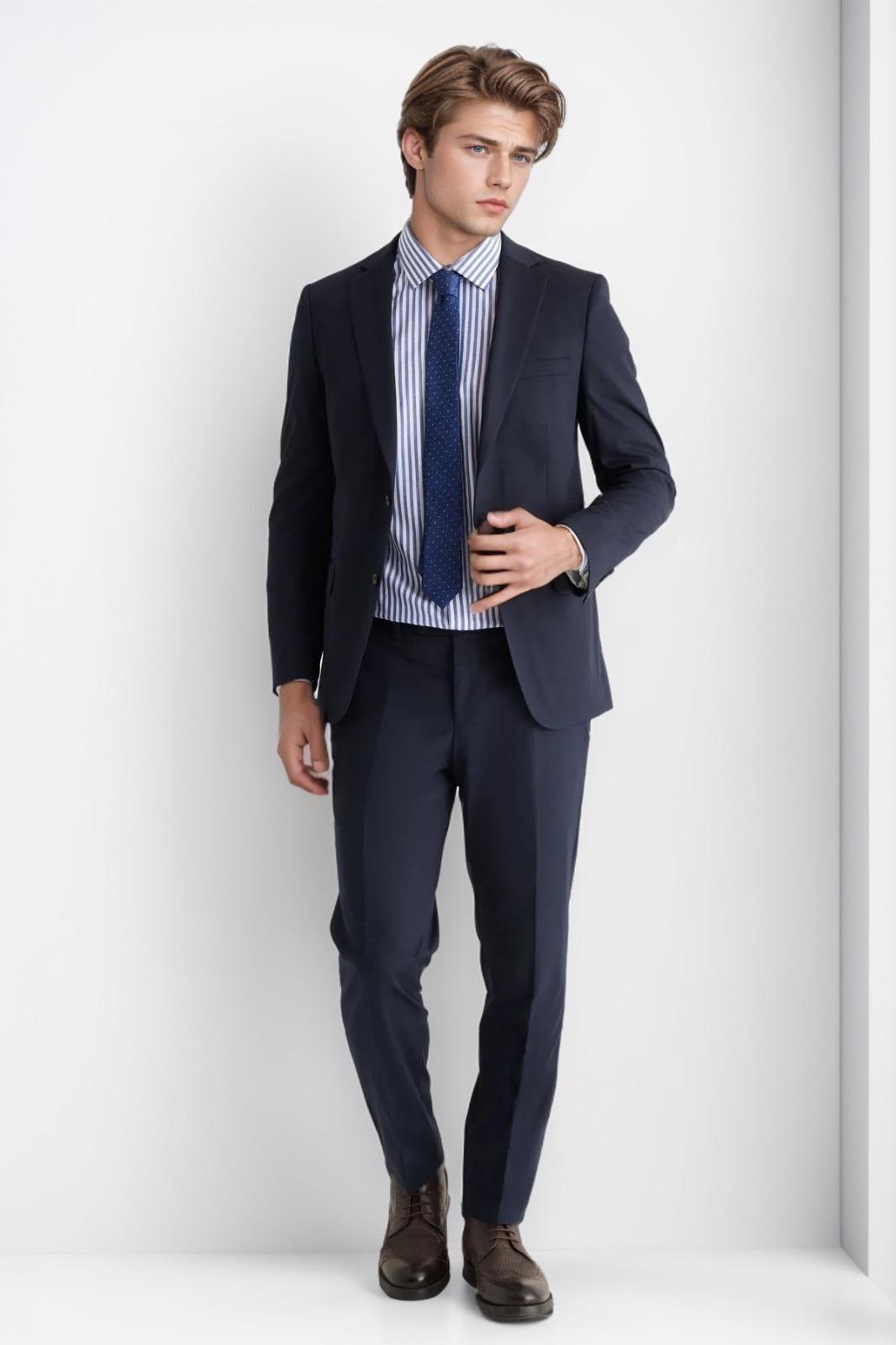
Elevate Your Style with a Perfectly Tailored Men's Suit
In today's fashion-conscious world, every man desires to look his best, whether it’s for a business meeting, a wedding, or a special event. A perfectly tailored men’s suit offers the ideal balance of style, comfort, and professionalism. Tailored suits are no longer just for high-end fashion; they have become essential wardrobe pieces for men who value quality, elegance, and a refined appearance.
Why a Tailored Men's Suit is Essential
A tailored suit is more than just clothing—it's an investment in how you present yourself to the world. Here’s why every man should consider adding a perfectly tailored suit to their wardrobe:
1. The Perfect Fit
Unlike off-the-rack suits, a tailored suit is designed specifically for your body. This means the suit will complement your natural shape, creating a sharp, refined silhouette. Whether you’re tall, short, slim, or muscular, a tailored suit fits perfectly, making you look polished and professional.
2. Personalization
When you opt for a tailored suit, you're not just choosing a piece of clothing off the shelf. You can personalize almost every aspect of the suit, from the fabric and color to the cut and details. You can decide on the lapel style, button placement, pocket design, and more, allowing you to create a suit that is uniquely yours.
3. Comfort Without Compromise
A tailored suit isn’t just about looking good—it’s also about feeling good. Since the suit is made to fit your specific body, you won’t have to worry about tight shoulders, oversized trousers, or uncomfortable jackets. Tailoring ensures maximum comfort while maintaining a sleek and stylish appearance.
4. Timeless Style
Fashion trends may come and go, but a well-tailored suit remains timeless. A classic navy or charcoal suit, when tailored perfectly, will never go out of style. By investing in a tailored suit, you're adding a timeless piece to your wardrobe that you can wear for years to come.
5. Confidence Boost
There’s something about wearing a suit that fits perfectly that can elevate your confidence. A well-tailored suit can make you feel more self-assured, helping you walk into any room with a sense of purpose. It exudes professionalism and commands respect, making it the go-to attire for important occasions.
Choosing the Right Fabric for Your Tailored Suit
When it comes to tailoring a suit, fabric is one of the most critical decisions. The fabric determines how the suit looks, feels, and performs over time. Here are some popular fabric choices to consider:
1. Wool
Wool is a classic choice for suits due to its durability, breathability, and versatility. It’s great for both formal and casual wear, making it ideal for year-round use. Wool suits come in a variety of weights, from lightweight to heavier options, making them suitable for different climates.
2. Cotton
For a more casual and lightweight option, cotton is an excellent choice. Cotton suits are breathable and perfect for warmer weather. However, they tend to wrinkle more easily than wool, so they may not be ideal for formal settings.
3. Linen
Linen suits are synonymous with summer. The lightweight and breathable fabric makes it perfect for hot weather. However, linen suits wrinkle quickly, so they’re often best for relaxed, casual settings.
4. Silk
For a luxurious, formal option, silk suits are unparalleled. They have a distinctive sheen and feel incredibly smooth to the touch. However, silk suits are generally more expensive and less durable than other fabrics, making them best for special occasions.
5. Polyester and Blends
Polyester is a synthetic fabric often used in blended materials. Suits made from polyester blends are generally more affordable but may not have the same breathability or durability as natural fabrics like wool or cotton. Still, they can be a good option for budget-conscious individuals looking for style on a dime.
The Art of Tailoring: What to Expect
Tailoring a suit is a detailed process that requires skill and precision. Here’s what you can expect when getting your suit tailored:
1. Measurements
The first step in tailoring is getting your measurements taken. This includes measuring your chest, waist, shoulders, arms, and legs to ensure every part of the suit fits perfectly. A good tailor will also consider your posture and body type.
2. Fabric Selection
Once your measurements are taken, you'll choose the fabric. The fabric selection will depend on your personal preferences, climate, and how formal or casual the suit is meant to be.
3. Customization
Now comes the fun part—customizing your suit. You'll choose the lapel style (notched, peaked, or shawl), the number of buttons, vent style (single, double, or no vent), and other details like pockets, cuff styles, and lining. These small details help make the suit uniquely yours.
4. Fitting Sessions
After the initial suit is crafted, you’ll have a fitting session to ensure everything fits correctly. Any minor adjustments can be made at this point, such as tapering the sleeves or adjusting the trouser length. A final fitting will ensure the suit is perfect before you take it home.
How to Care for Your Tailored Suit
To keep your tailored suit looking sharp, it’s important to take proper care of it. Here are some tips for maintaining your suit:
1. Dry Clean Sparingly
While it's tempting to dry clean your suit frequently, overdoing it can damage the fabric. Aim to dry clean your suit only when necessary, such as after several wears or when it's visibly dirty.
2. Use a Suit Hanger
Always hang your suit on a sturdy, wide-shouldered hanger to maintain its shape. Avoid using wire hangers, as they can cause the shoulders to sag.
3. Steam, Don’t Iron
If your suit becomes wrinkled, use a steamer instead of an iron. Steam gently removes wrinkles without risking damage to the fabric. If you must use an iron, ensure it’s on the correct setting for your suit’s fabric type.
4. Store Properly
When not wearing your suit, store it in a breathable garment bag to protect it from dust, moths, and humidity. Avoid storing it in plastic, as it can trap moisture and lead to mildew.
5. Rotate Your Suits
If you wear suits regularly, it’s a good idea to rotate them to avoid excessive wear on one particular suit. Giving your suits time to rest helps extend their lifespan.
 English
English  Deutsch
Deutsch  Español
Español  Italiano
Italiano  Português
Português  日本語
日本語 




